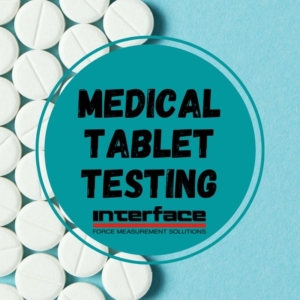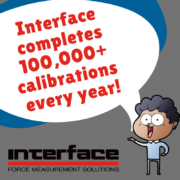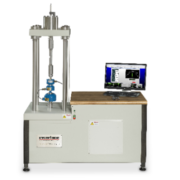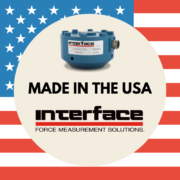Force Solutions for Medical Tablet Forming Machines
 In the medical and healthcare industry, accuracy is an absolute imperative in the devices used in every stage including diagnosis, surgery, health monitoring and even after care. This also applies to the specialized equipment used by pharmaceutical manufacturers, in both design and maintenance, when producing medicine and other healthcare related products.
In the medical and healthcare industry, accuracy is an absolute imperative in the devices used in every stage including diagnosis, surgery, health monitoring and even after care. This also applies to the specialized equipment used by pharmaceutical manufacturers, in both design and maintenance, when producing medicine and other healthcare related products.
When it comes to product development in the United States, not only do med devices and pharmaceuticals need to pass rigorous FDA regulations, but they must also be proven to serve patients and doctors safely. This results from robust test and measurement data requirements before seeking clearance. These same types of fundamental safety requirements of testing are also standard in most developed countries when seeking approvals before release.
Medical industry manufacturers turn to Interface because our force measurement solutions are designed for high performance test and measurement, in both accuracy and reliability. There is also a high demand for Interface’s ability to customize solutions to meet the exact requirements of these sensitive applications.
In a variety of medical device applications, one noted example is Interface’s role in providing various miniature beam and in-line load cell solutions with ten times the overload protection to protect against accidental shock loads. Our torque transducers provide rotary and reactive measurement to accurately track light movements required to control prosthetic fatigue testing, surgical equipment, knee or hip replacement and other medical devices. Other Interface solutions include multi-axis sensors for multiple channels of measurement in one housing. Read more about these types of medical applications here.
Interface provides force measurement solutions for a wide variety of products and machines that help biotechnology and pharmaceutical product engineers to design, test and manufacturer devices of all shapes and sizes. When it comes to equipment used in the manufacturing of medicine, Interface products are used to optimize production and reduce waste.
TABLET HARDNESS TESTING
In this application, a pharmaceutical tablet producer wanted to test and monitor the hardness of the tablets being created in their tablet forming machine. Interface’s SML Low Height S-Type Load Cell was mounted to the hardness device inside the tablet forming machine. The SML Low Height S-Type Load Cell was then connected to the 9870 High-Speed High Performance TEDS Ready Indicator to record the force measurements.
TABLET FORMING MACHINE OPTIMIZATION
For a tablet forming machine optimization project in Europe, a pharmaceutical tablet producer wanted to monitor the forces applied by the tablet forming machine in an effort to understand the relationship between raw material, die set, forming force, and motor cycle speed. The goal was to improve productivity and efficiency of the tablet forming process, while reducing losses such as cracked tablets or voids, by adding a dimension of feedback that could be used to assign specific press adjustment criterion for given inputs. An Interface Model WMC Sealed Stainless Steel Mini Load Cell 10K lbf was mounted in the section of the downward press bar. The machine was modified to accomplish this. The load cell was then connected to a Model 9320 Portable Load Cell Indicator to collect the needed data.
TABLET MACHINE HARDNESS CALIBRATION
Our partners in Germany also had the opportunity to work on a calibration project for a device that tested the hardness of tablets, such as a medicine in tablet form. The reason for this type of device is because medical tablets are overly sensitive to compression force when being formed and when ready to be shipped. If the tablets hardness isn’t tested properly, consistency in size and shape is nearly impossible. The need for force testing is because the device must provide very minimal and accurate forces to the tablet for product consistency. When this is applied to tablets that are used in medicine, accuracy in dosage is fundamental and an absolute necessity.
The customer required a unique solution to properly re-calibrate the device. They needed a mini-load cell the size of a sugar cube that replaces the tablets and fits horizontally in the tablet test-box. A special cable exit was also critical for the compression only calibration application.
Interface provided an MCC Miniature Compression Load Cell which can measure forces on its side with a special cable exit on the flat side that attaches to a calibration indicator, such as the Interface battery powered handheld indicator and datalogger Model 9330. The MCC load cell calibration set compares the applied forces with the hardness tester to make sure that the tablet hardness tester uses the correct force for future tablet hardness tests. The BlueDAQ software included in our indicator helps to log and compare the data of the MCC reference load cell.
In the past, the customer’s medical tablet machines had to be rebuilt for calibrations, or a complex mechanism had to be integrated to enable vertical calibration. With Interface’s new solution, the customer successfully verified and calibrated the tablet hardness tester machine horizontally to conduct accurate hardness testing on tablets in the future. Interface’s MCC Miniature Compression Load Cell was perfect due to its small size, and convenience in measuring the forces on its side.
Read more about these healthcare and medical applications in these posts:
Interface Solutions for Medical Devices and Healthcare
Interface Load Cells in Medical Applications
Interface Ensures Premium Accuracy and Reliability for Medical Applications
To see more of Interface’s solutions designed for the medical device industry, visit our solutions page at www.interfaceforce.com/solutions/medical-healthcare/.









